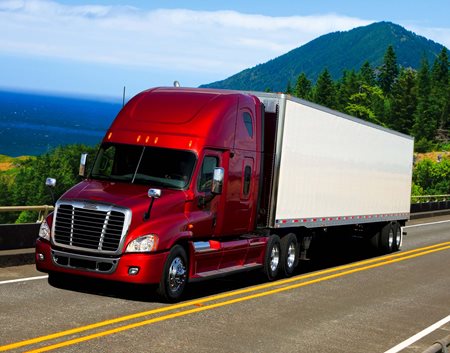The
Heavy Highway Vehicle Use Tax has several names including Federal Highway Use Tax, FHUT, 2290, or even “Road Taxes”.
ATBS receives calls year-round from owner-operators asking about this tax, often stressed or concerned about the conflicting messages they receive. It’s an important tax for owner-operators to be aware of and to be prepared to address every year.
Background
The Heavy Highway Vehicle Use Tax is a tax imposed yearly by the IRS on anyone who owns and operates a heavy highway vehicle (Class 6, 7 and 8 trucks are included) with a
taxable gross weight of 55,000 lbs. or more on public roads. Taxable gross weight is a combination of the following:
-
The actual unloaded weight of your truck fully equipped.
-
The actual unloaded weight of any trailer or semitrailer fully equipped.
-
The weight of the maximum load typically carried on your truck and trailer(s).
These taxes currently have a maximum of $550 per year (taxes increase as the taxable gross weight of the vehicle increases), and they are used for highway construction and maintenance.

When you file a Form 2290, you must provide an Employer Identification Number (EIN) as opposed to your Social Security Number. This is true even if you have not
established a business entity and are a sole proprietor and conduct business through your Social Security Number. If you don’t already have an EIN, you can apply online for free through the
EIN section of the IRS website.
Deadline to File
The FHUT tax season runs from July 1
st until June 30
th of each year, and is reported using the IRS Form 2290. The form must be filed
on the first month that the vehicle is used on public highways, not when the vehicle is registered. The way that works is if you use your truck in July, then you must file your Form 2290 between July 1
st and August 31
st. However, if you are using your vehicle after July 31
st, then you must file your form before the end of the month when you first use it on a public highway; your taxes will be prorated for the year. If you stop using, get rid of, or sell your vehicle halfway through the season, you can get a refund for part of the calendar year. Using
IRS Form 8849 and a
Schedule 6 will let you do that. If you have questions on the deadline to file the FHUT tax, please call your financial service provider or tax preparer.
Lease Purchase Program
Often ATBS is asked, “What if I am not the registered owner of the truck, but am leasing the truck through a lease purchase program or other lease program through my carrier or a 3
rd party leasing company?” In this situation, if the lease agreement you signed states that you are liable for all taxes involving the vehicle then you are liable for this tax.
Generally speaking, most carriers with a lease purchase program, and some 3
rd party truck leasing companies, will file the 2290 on the vehicle. Since they are the registered owner during the term of the lease agreement they are ultimately liable. But often they will deduct from the contractor a fee to cover the tax. In some cases, you may still have to obtain an EIN, file, and pay the 2290 tax if the lease terms dictate that you do so. The best practice is to clarify this with your carrier or leasing company prior to lease signing. If you are being asked by your carrier, or possible other agencies, for proof of payment of the 2290, you will need to produce Schedule 1 of the Form 2990 that is stamped “paid” by the IRS. Make sure you obtain and keep a copy of this in your permit book.
Penalties for Not Filing and Paying
As with most taxes, if the Heavy Highway Vehicle Use Tax is not filed on time and appropriately paid there will be penalties and interest imposed by the IRS. Interest accrues monthly, and as a result, what started out as a flat $550 tax can increase by hundreds of dollars very quickly. Operationally, even though your truck may not be impounded, you may be put out of service if you cannot provide proof of payment (stamped Schedule 1) of the 2290 to your carrier or governmental agencies. The ramifications of skipping this tax are obviously not worthwhile since they can result in lost revenue of thousands of dollars.
Partial Payment
The IRS requires a full payment on the Heavy Highway Vehicle Use Tax. Partial payments will not be accepted and may result in penalties and interest being imposed.
If you are having trouble filing your 2290, consult a trucking tax professional or call the Form 2290 Hotline (1-866-699-4096) Monday-Friday between 8 a.m. and 6p.m Eastern Time.
Remember, if you partner with a
reputable tax and accounting firm such as ATBS, dedicated to helping owner-operators succeed, they can provide honest, straightforward information regarding trucking-related tax forms.